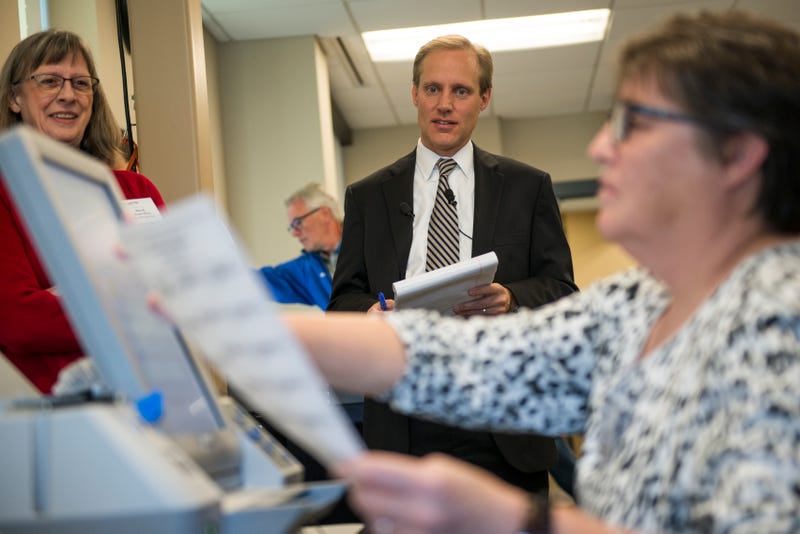
The Justice Department’s Civil Rights Division on Wednesday announced the filing of federal lawsuits against six states for what it said was a refusal to turn over voter registration lists.
Those lists are being sought by the U.S. attorney general in California, Michigan, Minnesota, New York, New Hampshire, and Pennsylvania.
“Clean voter rolls are the foundation of free and fair elections,” said Attorney General Pamela Bondi. “Every state has a responsibility to ensure that voter registration records are accurate, accessible, and secure — states that don’t fulfill that obligation will see this Department of Justice in court.”
This past August, Minnesota Sec. of State Steve Simon told WCCO Radio's Adam and Jordana that he would not be cooperating with the request. Simon says there's no gray area and the law protects the privacy of voters.
"I got a color in the lines. You know, it's like a coloring book," Simon explains. "The law tells me what those lines are, and both Minnesota law and federal law here say what my course of action needs to be. Which is what I've just described. We've got privacy around that data in Minnesota, and even under federal law. You got to give more."
The unusually expansive outreach by the DOJ has raised alarm among some election officials. That's because states have the constitutional authority to run elections and because federal law protects the sharing of individual data with the government.
"What we've said and we'll continue to say - as have other states, by the way red, blue, purple, and in between - is, you know, 'look, our state law is really clear about creating a dome of privacy over this kind of stuff,'" Simon explained in August.
All eight states being sued are led by Democratic governors, except for New Hampshire, which is led by a Republican.
An Associated Press tally found that the Justice Department has asked at least 26 states for voter registration rolls in recent months and in many cases asked states for information on how they maintain their voter rolls.
Oregon and Maine have already been sued for failing to provide information on procedures for maintaining their voter lists and copies of statewide voter registration rolls.
According to the lawsuits, the Attorney General is "uniquely charged by Congress with the enforcement of the National Voter Registration Act (NVRA) and the Help America Vote Act (HAVA), which were designed by Congress to ensure that states have proper and effective voter registration and voter list maintenance programs."
Some states have sent redacted versions of their voter lists that are available to the public.
But the department said the states were breaking federal law by refusing to supply all of their information on registered voters, including a voter's full name, date of birth, address, state driver’s license number and the last four digits of their Social Security number.
That, and insufficient answers about voter list maintenance procedures, make it impossible for the Justice Department to determine whether the states are complying with federal law, the department told the courts.
Some states — such as Michigan — have declined or demurred on the voter registration data requests, citing their own state laws or the Justice Department’s failure to fulfill federal Privacy Act obligations.
The Justice Department’s outreach has raised alarm among some election officials because the agency doesn’t have the constitutional authority to run elections. That power is granted to states and Congress. Federal law also protects the sharing of individual data with the federal government.
Election officials also raised concerns that federal officials are trying to use the sensitive data for other purposes, such as searching for noncitizens on the rolls.
The Associated Press contributed to this story.
